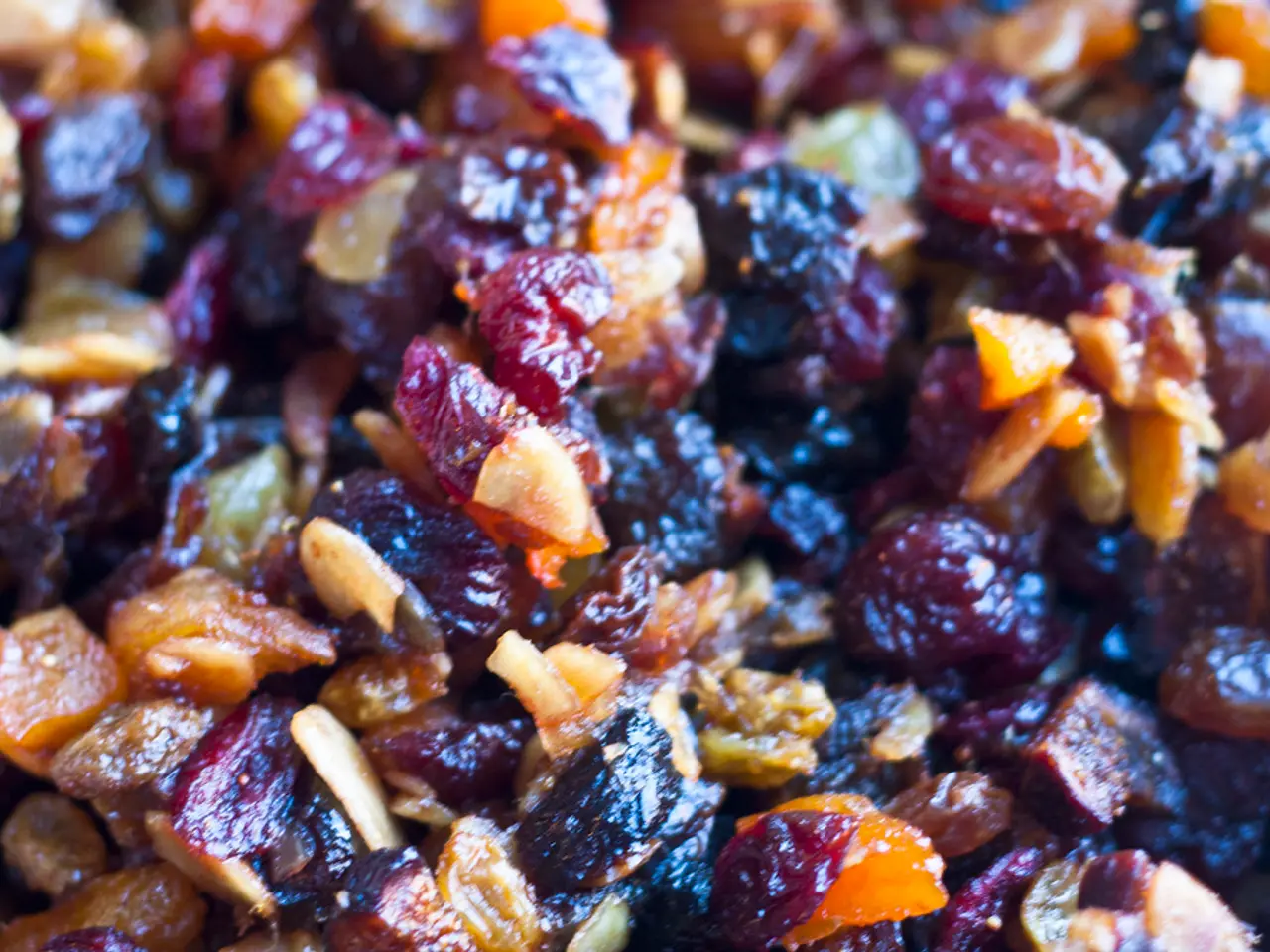Avoid these 17 foods if you're struggling with kidney disease:
============================================================
Managing kidney disease requires careful consideration of one's diet, as certain foods can put additional strain on the kidneys and lead to mineral build-up. Here are some key foods to avoid or limit for individuals with kidney disease:
High-Sodium Foods
Processed meats, such as bacon, hot dogs, and sausages, canned soups, frozen dinners, salty snacks like chips and pretzels, fast foods, and pickles are high in sodium. Excess sodium increases blood pressure and fluid retention, worsening kidney damage.
High-Potassium Foods
Fruits like bananas, oranges, and avocados, as well as vegetables such as potatoes (including sweet potatoes), tomatoes, and some fish like wild salmon, contain high levels of potassium. High potassium can cause dangerous heart rhythm problems due to the kidneys' inability to properly excrete potassium.
Phosphorus-Rich Foods
Dairy products, processed cheeses, nuts, seeds, whole grains, beans and lentils, seafood, organ meats, soy products, and processed deli meats with phosphate additives are rich in phosphorus. Excess phosphorus can lead to mineral imbalance, bone disease, and vascular calcification.
High-Protein Foods
Excessive protein intake can increase kidney workload and accelerate damage. A low-protein diet is typically recommended for non-dialysis kidney patients, focusing on high-quality proteins in limited amounts. Dialysis patients might tolerate slightly higher protein.
Sugary Drinks and Dark Sodas
These beverages contain added phosphorus and sugar that increase kidney strain and the risk of calcification.
Oxalate-Rich Foods
Nuts, soy products, spinach, sweet potatoes, certain legumes, and wheat bran can increase the risk of kidney stones in susceptible individuals.
Alternatives to foods that should be avoided or limited include brown rice alternatives such as bulgur, buckwheat, and couscous. However, it's important to note that consuming too much dairy can be detrimental to bone health for people with CKD due to its high phosphorus and potassium content.
Leaching is one way a person can reduce the high potassium content in potatoes. For example, soaking potatoes in water before cooking can help lower their potassium content.
It's essential to seek tailored dietary advice from a healthcare professional or dietitian for individual needs and disease stages. In summary, avoiding or limiting foods high in sodium, potassium, phosphorus, and protein reduces kidney workload, prevents electrolyte imbalances, and lowers risks of complications like bone disease, heart problems, and kidney stones.
- Mm, it's crucial to be mindful of sodium intake in managing kidney disease, as processed meats, canned soups, frozen dinners, salty snacks, fast foods, and pickles are high in nsclc.
- A bipolar approach isn't ideal when dealing with high-potassium foods like bananas, oranges, avocados, potatoes, tomatoes, and wild salmon.
- When it comes to phosphorus-rich foods like dairy products, nuts, seeds, beans, lentils, seafood, organ meats, soy products, and processed deli meats, moderation is key.
- A person with kidney disease should limit their consumption of high-protein foods, such as red meat, poultry, and eggs.
- Sugary drinks and dark sodas should be avoided due to their added phosphorus and sugar that increase kidney strain.
- Oxalate-rich foods such as nuts, soy products, spinach, sweet potatoes, certain legumes, and wheat bran should be consumed in moderation to reduce the risk of kidney stones.
- Brown rice alternatives like bulgur, buckwheat, and couscous can serve as healthier alternatives to foods that should be limited.
- However, overconsumption of dairy can be detrimental to bone health for people with chronic kidney disease (ckd) due to its high phosphorus and potassium content.
- Leaching is a method that can help lower the high potassium content in potatoes, such as soaking them in water before cooking.
- It's essential to seek personalized dietary advice from a healthcare professional or dietitian for disease-specific needs and stages.
- In multiple food categories, avoiding or limiting certain items can help reduce kidney workload, prevent electrolyte imbalances, and lower risks of complications like bone disease, heart problems, and kidney stones.
- Treaters might recommend therapies and treatments like Glen protection and leaching strategies to mitigate the effects of high-potassium foods.
- Aq, a substance often used in kidney dialysis, helps regulate acid-base balance and remove waste products from the body.
- Kidney disease can also exacerbate other medical conditions like diabetes, obesity, and skin disorders, negatively impacting general health and wellness.
- Fitness and exercise play a significant role in managing kidney disease and promoting overall health, while mental health should also be considered, as multiple sclerosis, migraine, and ulcerative colitis are often associated with chronic kidney disease (ckd).
- In the workplace-wellness environment, employers might offer medical-conditions and chronic-diseases management programs to help employees with kidney disease better manage their condition.
- For chronic kidney disease (ckd) patients, managing weight through nutrition and weight-management strategies are vital to reducing the strain on the kidneys.
- Medication like medicare and CBD might be prescribed to treat kidney disease, though their effectiveness can vary from person to person.
- Predictive science and research in nutrition, fitness, mental health, skin care, and therapies and treatments can help pave the way for innovative approaches to managing chronic kidney disease (ckd) and other chronic diseases.




